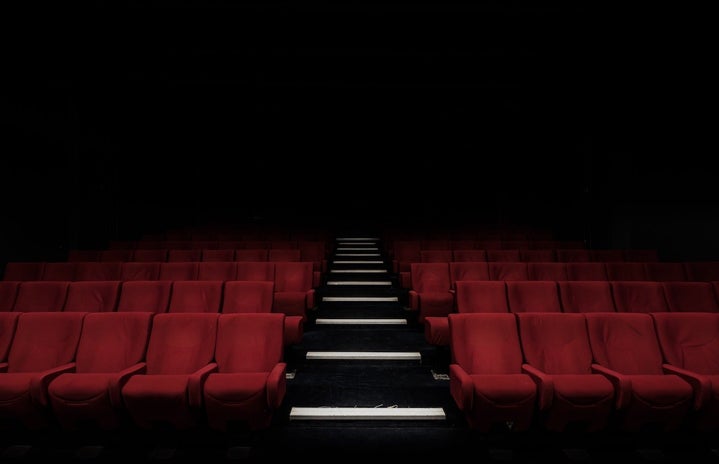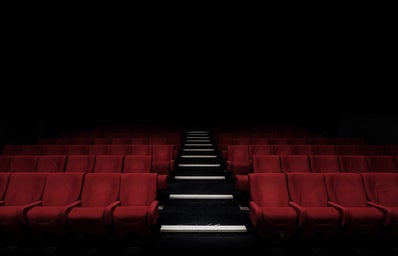Content Warning: Article contains mentions of sexual assault.
When I woke up to the news that the Golden Globe nominations were out, I strapped on my clown shoes and headed over to Google to see what the damage was. Besides the obvious snubs, such as I May Destroy You and Steven Yeun in Minari, there were two nominations that caught my eye — Gary Oldman and Jared Leto. The two of them have been acting for longer than I’ve been alive, and continue to get roles and tend to their fanbases despite the number of abuse allegations against them.
Many people know about Jared Leto’s disgusting behavior towards his Suicide Squad castmates, but they might not know that he has been accused of preying on and assaulting underage girls for years. They also may not know that Gary Oldman has been accused of abusing his ex-wife. Whether these specific allegations are true or not, the larger problem lies in how easily they were swept aside so that these men could continue their careers.
A lot of people say that they’re afraid to say anything these days out of fear of being “canceled.” My response to this is always: “Well, I don’t really think that cancel culture exists, because if it did, Jared Leto wouldn’t keep getting jobs.” It might be a little mean, but I believe it. This so-called “cancel culture” is actually extremely selective in who gets canceled and who is allowed to continue their pattern of bad behavior. If someone gets “canceled,” it could be brought on by anything, from disliking a K-Pop band to committing sexual assault. They usually don’t face any consequences, and if they do, they’re able to bounce back pretty quickly. It’s rare that somebody ever gets de-platformed completely.
So, what can happen exactly when someone gets “canceled”? I feel like there are three main options, so let’s take a look at them.
They get canceled and nothing happens.
This is usually what happens. Some unfavorable news will come out about a celebrity, and the internet will tie itself into knots arguing about it. For example, if it’s an abuse allegation, some people will immediately side with the victim, saying they would rather support a potential liar than a potential abuser, while others will berate the victim for “having no proof.” Even when there is proof, people will slam them for trying to “take down someone’s career.” While this type of argument could go on forever, the celebrity that started it will usually carry on unscathed. Whatever side you find yourself on during these types of situations, it’s always important to reflect on parasocial relationships, and whether or not you are unhealthily revolving your lives around famous people you don’t know. Celebrities are just people, and people can do bad things. They aren’t exempt from that just because you like them.
They get canceled but end up making a comeback.
Anyone who’s watched a YouTube video recognizes this song and dance. Someone like, and let’s just pick a random name, Jeffree Star, will be called out for racism again, and after a brief bit of radio silence they’ll come back with an apology video and carry on as if nothing happened. This cycle can be repeated over and over, and there never seems to be an end. Don’t get me wrong, I believe people are allowed to make mistakes. We’re human, we’re not perfect, and we mess up often. The problem lies in not changing your behavior. You can apologize all you want, but if your actions don’t reflect that, your apology means nothing. I have watched countless celebrities get “canceled” and come back with a half-fake apology like what they did doesn’t matter. This is definitely the most disappointing option to see, as it leaves you wondering when somebody’s bad actions are going to become enough to make people stop supporting them for good.
They actually get canceled and de-platformed.
This happens rarely, if at all, and when it does, I’ve noticed that it tends to affect people whose political views lean more to the left. When The Chicks spoke out against the US’s invasion of Iraq in 2003, they faced an immediate backlash, such as having their CDs destroyed and their music blacklisted from radio stations. When they tried to release new music and a tour later on in 2006, radio stations still refused to play their music. Some of their tour stops were even canceled because the local areas refused to advertise their concerts. All of this happened because of one comment criticizing the then-President of the United States, and the backlash itself was largely orchestrated by Republicans. This goes to show that, for some people, cancel culture is just “political correctness that has gone too far” until someone says something they personally don’t like.
So, bottom line: does cancel culture exist? No, I don’t think it does. What people tend to refer to as “cancel culture” is half internet arguments and half people actually being held accountable for their actions. For example, if you sexually assault someone or storm the Capitol Building trying to kill congresspeople, you deserve consequences, whatever those may be. If you think that my opinion is wrong, that’s fine — it’s just an opinion. However, if you’re somebody who spends a lot of time online, I think it’s important to think about how you react when somebody you like is facing accusations, and whether or not you are interacting with celebrities and the internet in a healthy way.



